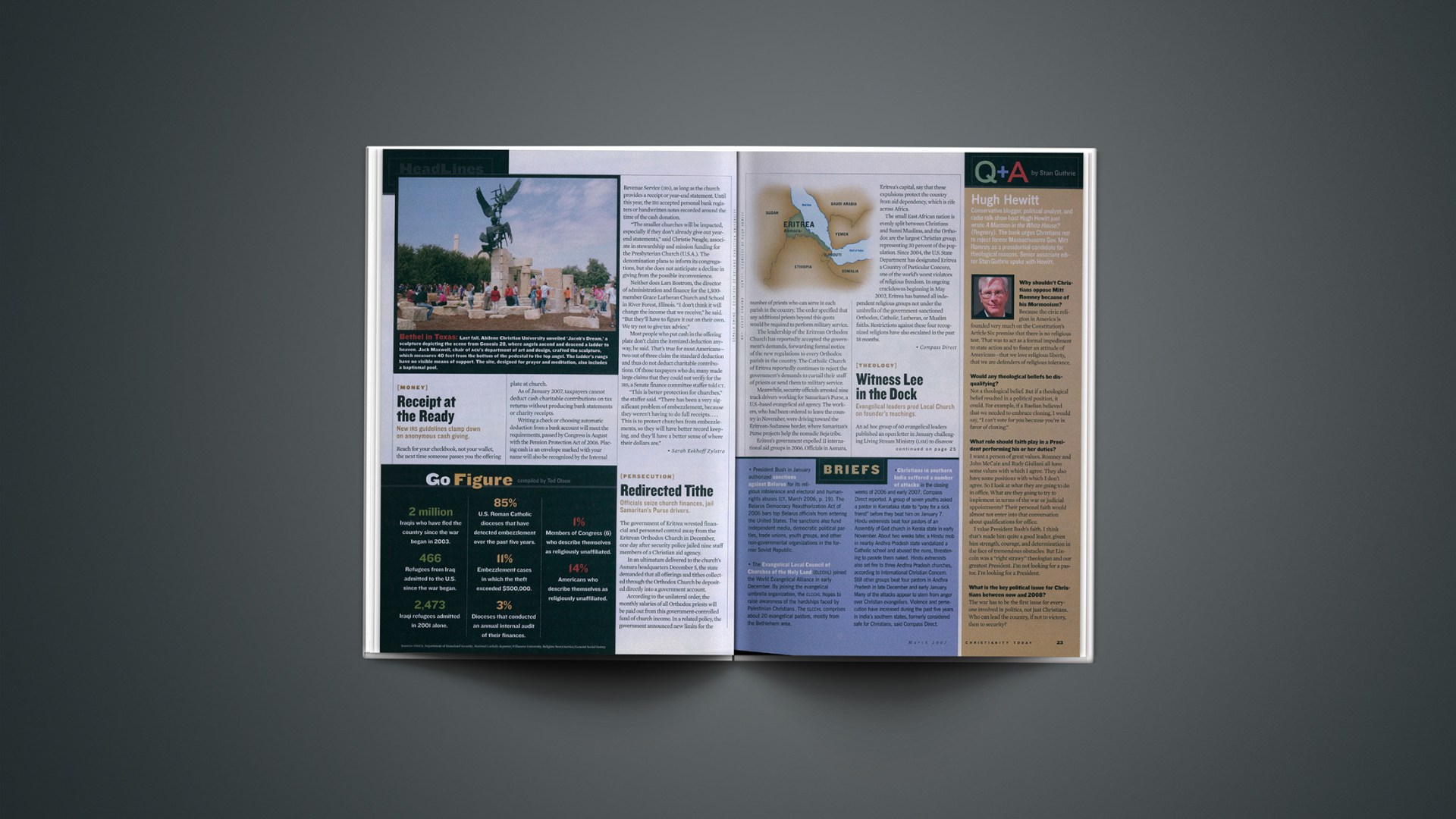The government of Eritrea wrested financial and personnel control away from the Eritrean Orthodox Church in December, one day after security police jailed nine staff members of a Christian aid agency.
In an ultimatum delivered to the church’s Asmara headquarters December 5, the state demanded that all offerings and tithes collected through the Orthodox Church be deposited directly into a government account.
According to the unilateral order, the monthly salaries of all Orthodox priests will be paid out from this government-controlled fund of church income. In a related policy, the government announced new limits for the number of priests who can serve in each parish in the country. The order specified that any additional priests beyond this quota would be required to perform military service.
The leadership of the Eritrean Orthodox Church has reportedly accepted the government’s demands, forwarding formal notice of the new regulations to every Orthodox parish in the country. The Catholic Church of Eritrea reportedly continues to reject the government’s demands to curtail their staff of priests or send them to military service.
Meanwhile, security officials arrested nine truck drivers working for Samaritan’s Purse, a U.S.-based evangelical aid agency. The workers, who had been ordered to leave the country in November, were driving toward the Eritrean-Sudanese border, where Samaritan’s Purse projects help the nomadic Beja tribe.
Eritrea’s government expelled 11 international aid groups in 2006. Officials in Asmara, Eritrea’s capital, say that these expulsions protect the country from aid dependency, which is rife across Africa.
The small East African nation is evenly split between Christians and Sunni Muslims, and the Orthodox are the largest Christian group, representing 30 percent of the population. Since 2004, the U.S. State Department has designated Eritrea a Country of Particular Concern, one of the world’s worst violators of religious freedom. In ongoing crackdowns beginning in May 2002, Eritrea has banned all independent religious groups not under the umbrella of the government-sanctioned Orthodox, Catholic, Lutheran, or Muslim faiths. Restrictions against these four recognized religions have also escalated in the past 18 months.
Copyright © 2007 Christianity Today. Click for reprint information.
Related Elsewhere:
The BBC has a profile of Eritrea, with an explanation of the country’s refusal of aid.
Other Christianity Today articles on Eritrea are available on our site.










